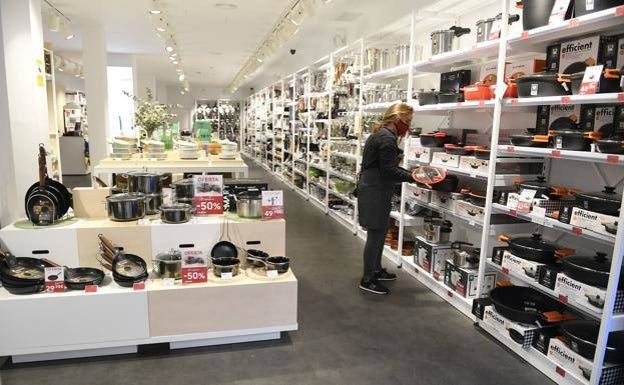
Sections
Highlight
Sections
Highlight

Edurne Martínez
Madrid
Wednesday, 18 May 2022, 17:32
The runaway inflation in Europe, especially in Spain (where it was 8.3% in April) may bring with it ‘second-round effects’ if companies start to put their prices up and increase workers’ salaries so they do not lose purchasing power. For that reason, the Bank of Spain’s Annual Report 2021 is calling for an income pact to mitigate the risk.
Although negotiations between employers and unions broke down some weeks ago after failing to reach agreement, the bank says this income pact is already being carried out in a tacit fashion. Its report says that companies have “very partially” been transferring their costs to the prices for their products since early 2021, resulting in a reduction in profit margins. At the same time, agreed salary increases are “clearly lower than the rate of inflation,” which means workers are losing purchasing power.
This means they will all share the “inevitable loss of income” for the economy. The report says this should also include pensioners, currently the only collective that does not lose purchasing power this year because pensions are updated in line with the CPI. However, it does say there is a need for an automatic adjustment index in the style of the repealed IRP (which implied an annual rise of 0.25% until Social Security comes out of deficit) to provide greater predictability for pensions spending.
Otherwise, the Bank believes new actions will be needed on income, spending or both, to cope with the increase in pensions. It therefore considers the current reform insufficient and says the longer the inflationary pressure lasts, the greater the probability of significant second-round effects and the higher the economic cost will be.
The economic impact is already evident and the Bank has confirmed that it is lowering its forecasts for economic growth in 2020, currently at 4.5%, because in the first quarter of the year the economy advanced less than expected (just 0.1% instead of the 0.9% estimated by the Bank of Spain).
To increase State income, the Bank of Spain says a complete review of the tax system is needed. Among its proposals is an increase in the Spanish value added tax, IVA, so that the standard rate (21%) is charged on products for which the tax is currently 10% or 4%.
The report also says the 20 céntimos per litre discount on fuel which is in force until 30 June is contrary: it reduces general inflation, but benefits higher-income households more than those on lower incomes and can therefore be considered a waste of resources. The Bank of Spain considers that it should be changed so it focuses more on helping the most vulnerable groups in society.
Publicidad
Publicidad
Publicidad
Publicidad
Esta funcionalidad es exclusiva para registrados.
Reporta un error en esta noticia

Debido a un error no hemos podido dar de alta tu suscripción.
Por favor, ponte en contacto con Atención al Cliente.

¡Bienvenido a SURINENGLISH!

Tu suscripción con Google se ha realizado correctamente, pero ya tenías otra suscripción activa en SURINENGLISH.
Déjanos tus datos y nos pondremos en contacto contigo para analizar tu caso

¡Tu suscripción con Google se ha realizado correctamente!
La compra se ha asociado al siguiente email
Comentar es una ventaja exclusiva para registrados
¿Ya eres registrado?
Inicia sesiónNecesitas ser suscriptor para poder votar.